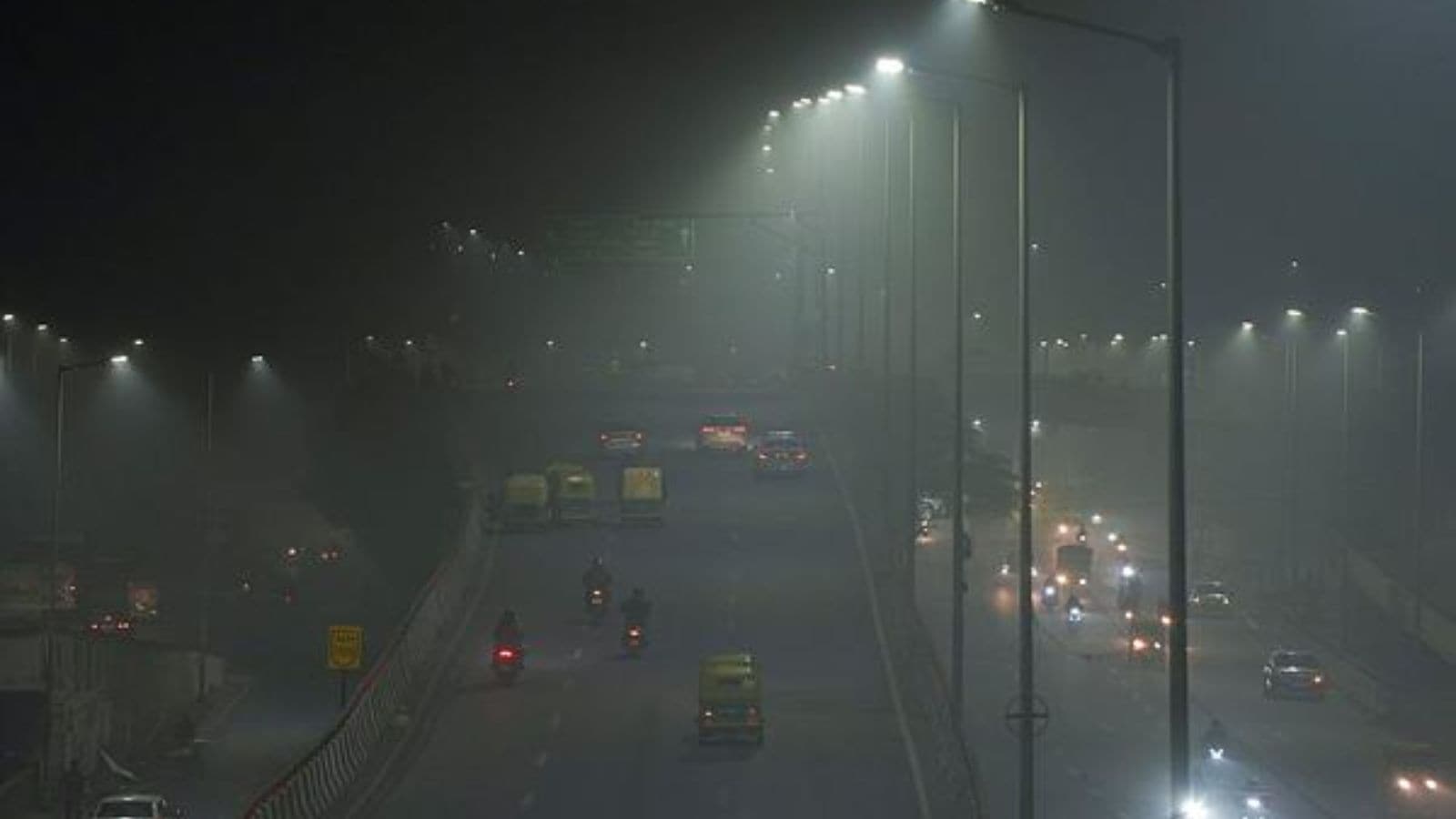 |
|
Delhi, the bustling capital of India, found itself enveloped in a thick blanket of dense fog for the third consecutive day, causing widespread disruptions to air and rail travel. This meteorological event, while not unprecedented, significantly impacted the daily lives of Delhi residents and highlighted the city's vulnerability to adverse weather conditions. The intensity of the fog resulted in near-zero visibility at Palam airport for extended periods, leading to numerous flight delays and cancellations. According to Flightradar24, a leading flight tracking website, over 300 flights experienced delays, while nearly 30 were completely canceled. Although Delhi airport officials reported no flight diversions, the sheer number of delays points to a significant impact on air travel. The disruption extended beyond the skies, affecting the rail network as well. Trains departing from and arriving at New Delhi Railway Station faced considerable delays due to the reduced visibility, further adding to the overall travel chaos experienced by commuters.
The impact of the dense fog extends beyond mere inconvenience. The reduced visibility presents significant safety concerns for pilots and train drivers, demanding meticulous adherence to safety protocols and potentially leading to increased operational costs for airlines and railway authorities. Passengers faced long waits, missed connections, and the added stress of uncertainty surrounding their travel plans. The economic consequences of such widespread disruptions are substantial, affecting businesses dependent on timely transportation of goods and services, and impacting tourism, a vital sector for Delhi's economy. The knock-on effects rippled through various sectors, highlighting the interconnectedness of transportation systems and their importance to the city's overall functionality.
Beyond the immediate travel disruption, the prolonged fog exacerbated Delhi's already problematic air quality. For the fourth consecutive day, the city's air quality index (AQI) remained in the 'very poor' category, indicating dangerously high levels of pollutants. The combination of stagnant air, low visibility, and reduced wind speeds traps pollutants near the ground, leading to a significant deterioration in air quality. This poses a serious health risk to the city's residents, particularly those with respiratory conditions. The prolonged exposure to poor air quality can lead to a variety of health problems, ranging from minor respiratory irritation to more severe conditions such as asthma attacks and cardiovascular complications. The authorities have issued warnings urging residents to minimize outdoor activities and take necessary precautions to protect their health.
However, a glimmer of hope appeared on the horizon with the India Meteorological Department (IMD) forecasting light rain for Monday. This much-needed respite is expected to bring some relief from the dense fog and improve air quality by clearing the pollutants. The anticipated light rain also signals the arrival of a western disturbance, which is expected to bring a marginal increase in maximum temperatures. This shift in weather patterns is predicted to reduce the likelihood of 'cold day' conditions, characterized by significantly low maximum temperatures. The IMD's forecast also includes predictions of moderate fog on some days and even thunderstorms later in the week, indicating that the weather patterns are likely to remain dynamic in the days to come. The fluctuating weather conditions present a challenge for both authorities and residents, requiring preparedness and adaptation to the ongoing changes.
The recent events in Delhi underscore the importance of robust infrastructure and effective communication during adverse weather conditions. The timely issuance of passenger advisories by the Indira Gandhi International Airport, although highlighting ongoing challenges, reflects an effort to keep passengers informed. Improved forecasting capabilities, proactive measures to manage disruptions, and investment in infrastructure to minimize the impact of such events are crucial to mitigate the challenges posed by extreme weather. The long-term solution necessitates a comprehensive approach to urban planning, transportation management, and environmental protection, addressing both immediate and long-term concerns related to air quality and climate change. The experience serves as a reminder of the intricate relationship between weather patterns, public health, and the functioning of a major metropolitan city like Delhi.
Source: Dense fog engulfs Delhi for third day in a row; light rain likely tomorrow
